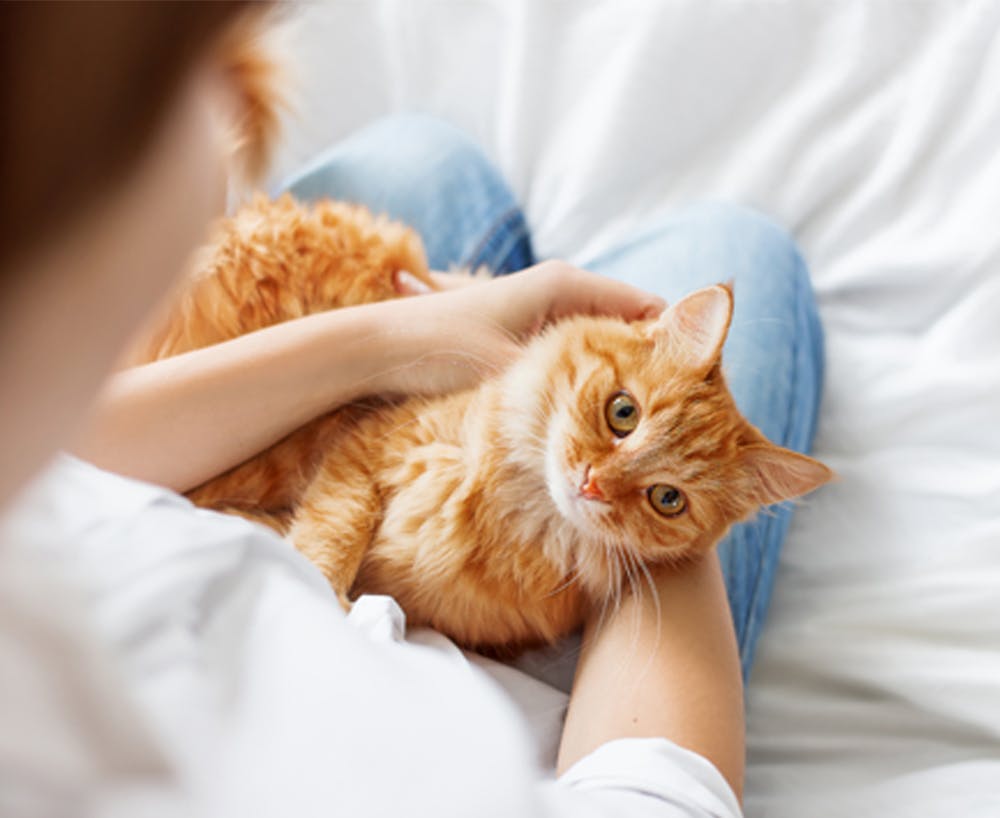Should your cat be microchipped?
August 6, 2020

In Hong Kong, dogs are required by law to have microchips while cats are not. However, most vets and animal shelters still strongly recommend cat owners to get their feline friends microchipped. We ask our in-house vet advisor to explain what a microchip is and how it can help you and your kitty.
Q: What is a microchip for pets and how does it work?
A: It is an electronic chip about the size of a grain of rice that is inserted under a pet’s skin with a needle. Each microchip contains a unique ID number that vets and shelters can look up to find the pet owner’s contact information. The chip sits passively until a scanner detects it and retrieves the ID number through radio waves. It’s a safe and relatively painless procedure.
We encourage microchipping as it greatly increases the chances of cats and dogs that wander too far from home reuniting with their owners. If lost pets are picked up by the government’s Agriculture, Fisheries and Conservation Department (AFCD), it is sadly the case that many will be euthanized if they can’t be identified or put in a new home.
If you’re adopting your pet, or if you’ve changed your address or phone number, please remember to update your information for your pet’s chip. It would be much harder to locate a pet’s owner if their information is outdated! For dogs, the AFCD keeps a database of microchip numbers and owners’ details. For cats, there is no centralized database as cats aren’t required to be microchipped. Still, it’s important to register and update your information with the clinic or shelter where your kitty got chipped. It’s still possible to find a lost feline even if the AFCD doesn’t keep their data.
Q: My cat stays indoors and never goes outside. Why does he/she need a microchip?
A: It’s no secret that cats are incredibly curious animals. Even if your kitty seem perfectly happy with an indoor life, you never know what sound or smell might prompt them to sneak out an open window or door. The outside world can be daunting for indoor felines that are not used to navigating the streets, and they might have trouble finding their way back home.
Microchips is mandatory in certain situations, such as purchasing pet insurance or moving to another country. If you’re moving to Hong Kong with your kitty, he or she will need to have a microchip before entering the city.
Q: Are there different types of microchips? How can I be sure my cat’s chip is universally recognized?
A: Yes, there are several different types of microchips in the market right now and it can be confusing. In Hong Kong, the required chip for pets is AVID brand 9-digit microchip. As mentioned earlier, microchips are detected based on radio waves and AVID chips are read at a frequency of 125 kiloHertz (kHz). The other common type of chip you may have heard of is the International Organization for Standardization (ISO) chip, that uses a frequency of 134.2 kHz.
In Hong Kong, it is generally not a problem since AVID is the standard, and all vets and shelters will have scanners that can read it. It may only be a concern if you move abroad where there isn’t a single standard. In the United States, for example, all three radio frequencies are used and it isn’t guaranteed that vets will have scanners that can read your pet’s AVID chip. However, there are universal scanners that are able to read multiple frequencies.
If needed, your pet can get a second chip with different frequency. The first chip doesn’t need to be removed and they don’t interfere with each other.
Q: Where can my kitty get microchipped in Hong Kong? Is it expensive?
A: Your vet can perform this simple and affordable procedure easily at your kitty’s next visit. If you’re looking to adopt, a number of animal shelters (SPCA, Hong Kong Cats) will microchip cats before letting them go to their new homes.
Q: Are there any health risks from pet microchipping?
A: As with any medical procedure, there is always a risk no matter how many times it has been performed. But I can tell you that microchipping is very safe and the benefit it brings definitely outweighs the rare chances of side effects. There has been isolated incidents where pets had reactions to microchipping, including tumors. However, not all the cases could be linked to the microchip and could be caused by something else.
Sources:
https://www.avma.org/microchipping-animals-faq
